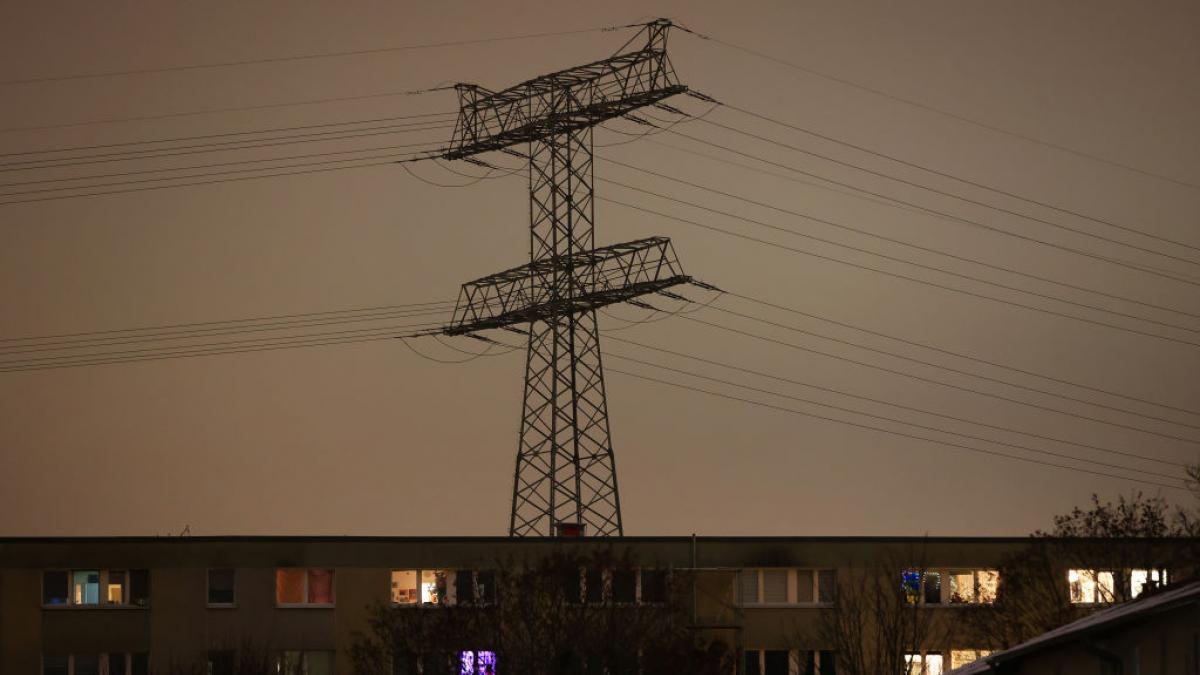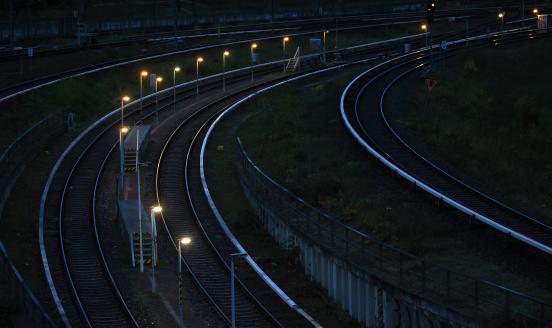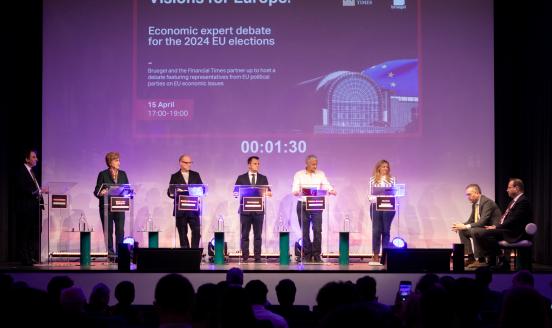To cap or not to cap: the deal Europe needs on energy prices
An EU gas price cap would be counterproductive, but the reasons why it is supported widely must be acknowledged and addressed.

Since Russia’s invasion of Ukraine, Europe has taken major steps to ensure security of energy supply and help families and businesses tackle rising energy prices. Gas storage facilities have been refilled, gas and electricity demand has declined, and prices have receded from their August peaks. However, energy prices remain extremely high compared to 2021, and the EU is divided on how best to reduce prices while guarding against new disruptions. To resolve the division, it is important to understand the reasoning on either side and to adopt a mutually-satisfactory solution. This is what we set out to do here.
For several months, EU countries have been divided into two main camps. The first camp, which includes France, Italy, Spain, Poland, Portugal, Greece and nine other EU countries, would like to cap the wholesale gas price, arguing that this addresses the problem at source, can be implemented quickly and will help reduce inflation. The second camp, led by Germany and the Netherlands, argues that such a cap would raise demand and make it harder for the EU to attract gas supplies.
This situation is unfortunate for many reasons. It is blocking agreement on a coordinated solution and undermining EU unity in the face of Russian aggression. And it is perpetuating divisions the EU has worked hard to overcome. The split more or less aligns with the divide between the fiscally ‘frugal’ north and the less-frugal rest (the main difference being that eastern EU countries are now mostly aligned with the rest). How is this possible, given that the geography of this crisis – with Germany, Italy and some eastern EU countries among the hardest hit, and Spain and France much less affected (Figure 1) – is so different? The answer has to do with differences in fiscal headroom, and the tensions and concerns created by these differences.
A wholesale price cap could in principle stabilise energy prices at low or even zero fiscal cost. For example, the so-called Iberian exception, implemented by Spain and Portugal since June 2022, caps the price of gas as an input to electricity generation. Because gas is the most expensive (‘marginal’) input, the effect of the cap is to reduce wholesale electricity prices, the profits of electricity generators that use cheaper (‘inframarginal’) inputs such as renewables, and ultimately prices paid by consumers.
Gas suppliers then receive a subsidy that covers the difference between the market price and the cap, and the cost of the subsidy is passed on to consumers, who nevertheless remain better off because they subsidise only the gas input, but benefit from lower prices on all electricity consumption. The state pays nothing. Such an approach would level the playing field between countries like Germany with a lot of fiscal space, and those like France, Italy and Spain with less fiscal space, by preventing a subsidy race that would be won by Germany.
Price cap problematic
This line of argument helps in understanding the geography of the price cap debate in Europe and offers support for such a cap. However, an EU-level gas price cap is a still a bad idea, for two main reasons.
First, it makes no sense from an energy policy point of view. While it would not necessarily raise gas demand relative to previous years (if the gas price is capped above the level in previous years), it would do far less to reduce demand than well-designed alternatives such as Germany’s gas price brake, which would cap retail prices for 70%-80% of last year’s consumption while exposing consumers to market prices for any additional consumption. And as its opponents have argued, the cap might indeed harm Europe’s ability to attract gas on global markets, putting at risk much-needed supply during 2023.
Second, a price cap could create more division than it prevents, by having large distributional effects, which would need to be compensated in some form. Consider, for example, the idea of applying the Iberian exception EU-wide. Since France uses very little gas in the power sector, it’s consumers would pay very little for the scheme. At the same time, France would benefit through low-cost electricity imports from Germany and the Netherlands. In effect, German and Dutch consumers would be paying to reduce the electricity bills of French consumers.
That said, advocates of a price cap are right to worry about the implications for the EU level playing field of subsidies given to firms. A subsidy race could harm fiscally weaker EU countries in two ways. First, it could suck all the gas into the countries with the most generous subsidies. This is not what Germany has in mind; its subsidies are designed to reduce German demand, not to increase it, benefiting other EU countries. Second, even if Germany manages not to suck in gas from other countries, it has plenty of fiscal space to support its firms – unlike Italy, for example. If German energy-intensive firms emerge from the crisis largely unscathed while their Italian competitors go under, a deep wound would be inflicted on the EU, on top of the scars that remain from the euro debt crisis.
Under pressure from member states to deliver a price cap that does not have massive adverse consequences, the European Commission has proposed a very restrained version of a price cap – essentially limiting the volatility of the main gas price index. The effectiveness and side-effects of this relatively light intervention will depend on its detailed implementation. The costs may outweigh the upside, but the proposal contains sufficient safeguards to ensure that costs do not spiral out of control. But the proposal does not stack up either economically or politically. It might win over a few countries, but does not address the concerns that are driving the call from more than half of EU countries for a price cap.
EU leaders at a 15-16 December summit will seek a deal, in follow up to an energy ministers’ meeting of 24 November. What would it take to resolve differences? In our view, the EU should drop the price cap ideas and instead tackle the level playing field concern, more efficiently and transparently. This could take the form of an EU fund to protect consumers from high gas prices, while also incentivising energy savings and accelerating the roll-out of clean solutions. Or the EU should pool its gas demand in a joint purchasing scheme to give it more bargaining power relative to external supplies.
Energy crisis fund
An EU energy crisis fund should support three essential policy goals.
First, it should promote energy savings. The energy crisis is fundamentally a supply crisis and therefore reducing demand is imperative. Compensation schemes should be available to gas and electricity users to give them incentives to reduce their usage.
Second, it should provide a minimum level of support to all European industry, to ensure a level playing field.
Third, the fund should be used to help accelerate the rollout of clean tech, to fully decouple Europe from Russian fossil fuels. Fast tracking of renewable electricity generation, heat pumps and energy efficiency measures will reduce demand for Russian gas, simultaneously stabilising security of supply, pushing down energy costs and decarbonising the power and heat sectors. Deploying a common EU fund would narrow the growing gap in capital costs for clean technology investments that arises because of lending rate differentials across the EU. Prioritising renewable capacity installation – that in the short term might face equipment shortfalls – could increase the positive impact. This would be especially the case for countries where such investment can most efficiently displace large volumes of gas, such as Italy, which still burns gas even when solar electricity could be generated for free.
Europe’s energy crisis fund could be financed primarily from the €40 billion already made available by Commission President Ursula von der Leyen for energy-price support, using the leftovers of EU cohesion funds. Member state contributions or common borrowing could add to the amount.
A complementary measure to reduce gas prices would be joint purchasing of gas through the EU energy platform tool. The European Commission proposed in October that joint purchasing should cover at least 15% of EU countries’ storage requirements for 2023, but this is still subject to discussion by energy ministers on 24 November. This initiative needs to be ready for the 2023 storage refilling operations, to put Europe in a better position at a time when global LNG market might be even tighter than in 2022. This initiative could prevent European countries outbidding each other to secure LNG cargos, and would facilitate the allocation of scarce gas volumes across borders in case of severe supply problems. This would reduce the risk of EU energy-market fragmentation, and of subsequent energy security, economic and political fallout.



